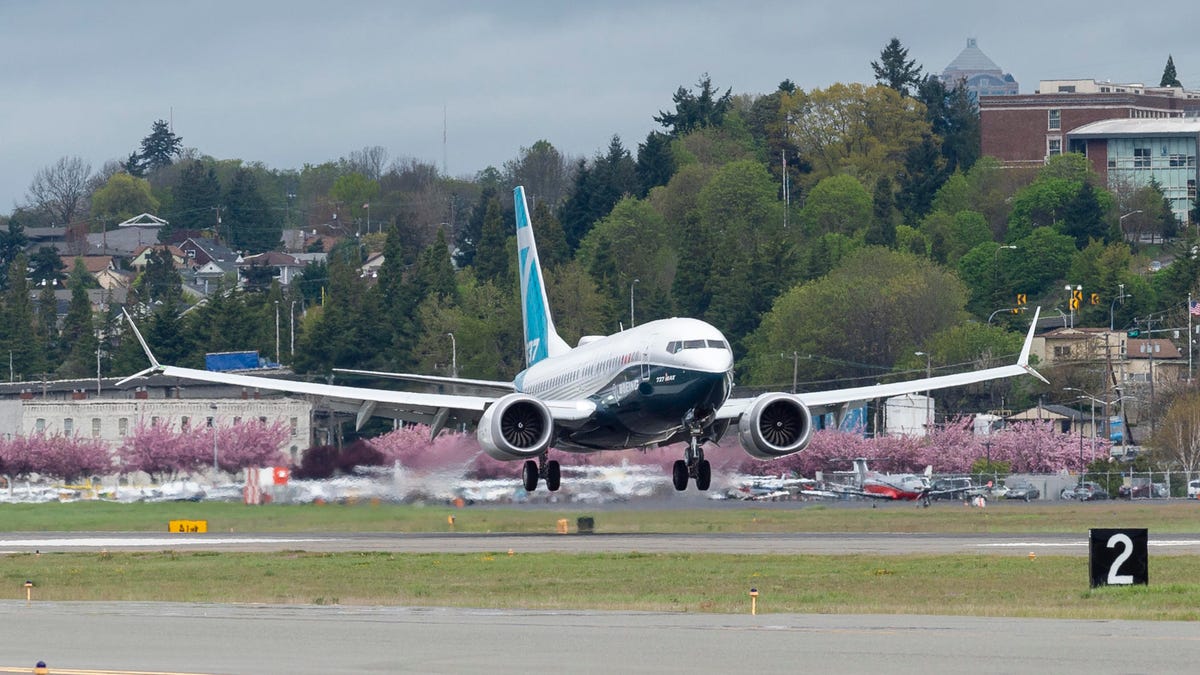EU wants own review of Boeing 737 Max repairs
In a departure from its usual practice, the EU's safety agency says it won't automatically accept the FAA's recertification of the still-grounded airplane.

A Boeing 737 Max 7 lands at Boeing Field in Seattle after a test flight to evaluate the MCAS software fix.
There's no still timetable on when the troubled Boeing 737 Max will carry passengers again, and now the European Union is determined to put its own stamp on the airliner's recertification process. Speaking before a European Parliament committee this week, Patrick Ky, executive director of the European Union Aviation Safety Agency, said the EU will conduct independent tests of the plane before it can resume commercial flights to and within Europe.
Ky laid out four conditions that the EASA presented to the Federal Aviation Admnistration earlier this year as the US agency begins its own review of repairs to the MCAS flight control system being blamed for two crashes that killed 346 people. Notably, the EASA insisted that it approve all changes to the 737 Max proposed by Boeing without delegating any testing to the FAA. It also asked for a broader review of the aircraft's design, a complete understanding of the cause of the crashes (the official accident reports have yet to be published) and an adequate flight crew training process.
"We've decided to recertify the critical parts [of the 737 Max] that we hadn't looked at previously," Ky said. "Those are domains we had not certified ourselves because we had delegated those tasks to the FAA."
The EASA's conditions mark a sharp change from how the EU and the US have negotiated the certification process for commercial airplanes in the past. As part of a bilateral aviation safety agreement, the European Agency has traditionally accepted the FAA's decisions without conducting its own review. The agreement has allowed new aircraft, whether they're made by Boeing, Airbus or anyone else, to start flying in both regions at the same time.
The FAA has been under close scrutiny since the 737 Max crashes -- the first in October 2018 and the second in March of this year -- over whether Boeing employees acted on behalf of the agency during the certification process and whether it was too lax on setting pilot training standards. In an emailed statement, an FAA spokesman said the agency has a transparent and collaborative relationship with other civil aviation authorities as it continues its review of changes to the airplane. "Our first priority is safety, and we have set no timeframe for when the work will be completed," the statement said. "Each government will make its own decision to return the aircraft to service based on a thorough safety assessment."
If the two agencies disagree on the 737 Max's airworthiness following the repairs, the return of the airliner could be chaotic. US operators like Southwest and United could be flying the airplane domestically with the FAA's blessing, but unable to enter EU airspace. Likewise, European airlines would also have to wait for the EASA to give a green light to Boeing.

